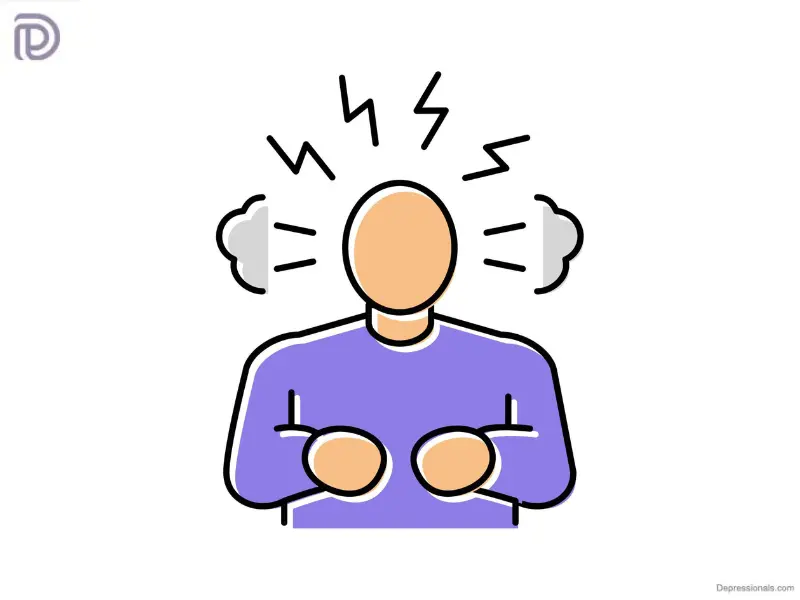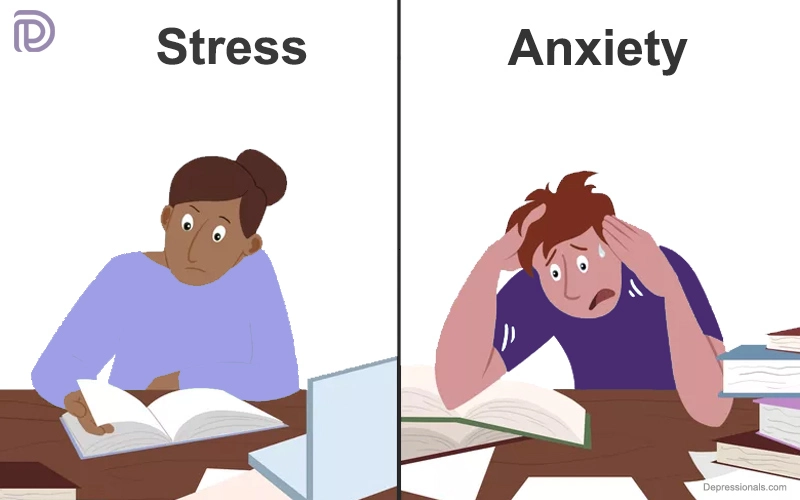Everyone must know how to deal with frustration because frustration is a difficult emotion to describe – it’s a mixture of anger, disappointment and annoyance. There is a high level of frustration among health care workers right now due to stock shortages of personal protective equipment, minimal workplace support and an uncaring public. It’s not always productive for us to feel frustration and anger, and while we can’t always control whether or not we feel those emotions, we can control how we respond to them.
People are being told to avoid going out and stay home today. People are getting stir crazy from the self-isolation. Some people find it frustrating to be stuck at home with their family. Sometimes life doesn’t go as planned. Occasionally, things do not go as planned. There are also times when people irritate or frustrate us. If you are forced to deal with all of these emotions while isolated from the world around you, you will likely be frustrated. We’ll explain 10 easy ways to deal with frustration during these difficult times in this article.
Read: Acute Stress Disorder
10 Ways to deal with frustration
1. Meditate
In order to deal with frustration, you must first recognize how you feel. Sometimes it’s hard to notice frustration coming on, believe it or not. Occasionally, we snap at loved ones when we weren’t aware we were angry. Meditation can help you keep track of frustration more effectively. The act of meditating simply makes you more aware of the sensations and feelings in your body.
Therefore, when you notice that feelings of frustration are rising for you, you will be able to lower them instead of taking them out on those you love. Being more aware of the present moment is one of the benefits of meditation. Meditation can help prevent frustration from building up in you if you have anger issues or frequently have fits of rage.
Many people are currently alone in their homes. Secondly, you get to spend quality time with those you care the most about. What a great experience! On the other hand, you’re stuck with those who can irritate or frustrate you the most. Oops. Usually, it’s okay for family members to annoy or frustrate us occasionally. Then things can spiral out of control when you’re at home for weeks at a time. So it’s crucial to meditate for at least 10 minutes each day.
2. Get some fresh air
In many countries, no one will prevent you from getting some fresh air, even if some parks, stores, and public areas are closed in specific cities around the world. The fresh air from your backyard or balcony can do your body good, whether you spend some time there or not. If you own a pet, you may want to walk it more frequently than usual to experience the warmth of the sun.
Take time to breathe deeply while outside. Experiencing nature is a rewarding experience. While you shouldn’t go to your local beach, taking a stroll at your local park or along the river can be relaxing. However, don’t engage in social interactions at this time. There may be someone contagious around.
Related: 12 Simple Ways to Reduce Stress
3. Exercise
Exercise is a healthy way to deal with frustration. Physical movements allow you to release pent up energy instead of carrying it within yourself. Try going for a run when you feel frustrated. When you feel particularly angry, try punching the air while moving forward. You’ll realize how good it feels. Running can relieve frustrations of even those who do not like running.
If you want to change your mood from frustrated to happy, you can also do other cardio exercises such as dancing. You may find some relief from your pent up frustration by weight lifting if you have accumulated a lot of it. Lifting the weight up will make you grunt a little. The result of each of these actions is that you’ll be able to endure frustration in a way that strengthens you.
4. Practice nonviolent communication
Are you guilty of saying things you shouldn’t have said when frustrated? Raise your hand if you have. You’re not alone. Our words can cause pain to people we care about when we are frustrated with them. It doesn’t help if you verbally attack someone, as it only makes the problem worse. Marshall Rosenberg wrote an excellent book called Nonviolent Communication: A Language of Life about communicating your needs. When our needs are not met, we may feel frustrated. We can end up frustrated for years if we do not know how to express those needs to others. This book may push you in the right direction if you invest some time in reading it.
5. Visualize your goals positively
Thankfully, positive visualization does not have to be woo-woo. The idea of having no worries in the world while standing on a beach as a billionaire can be a wild dream, but deep under you know it’s impossible. The majority of billionaires are overwhelmed and stressed out. However, positive visualization can assist you in reducing your frustrations.
Read: Chronic Stress Disorder
6. Change how you think
Just thinking positively will not cure your frustration. The process can assist you in changing your thought process. You may have found yourself going down a rabbit hole when you were thinking a negative thought. Then how are you able to control it when one thought expands into something so large? That must be so frustrating! All the positive mantras in the world won’t help you.
Think of evidence that counters a negative thought when a negative thought enters your mind. Imagine telling yourself, “I forgot to buy eggs at the grocery store, I am so forgetful.” However, describing yourself as a forgetful person is a lasting way to label yourself for the small mistakes you make. Instead, think to yourself, “I forgot to buy eggs today because I was too busy to add them to the grocery list.”. Next time I’ll pick some up.” That way, you include an explanation for not buying eggs along with a solution that proves the issue can be resolved.
Read: Stress Management Techniques
7. Find solutions, not problems
The problem takes all our attention when we’re frustrated instead of the solution. Make a list of all the possible solutions whenever a problem grows bigger. This will help you remember that the problem can be fixed. You can also fix your frustration.
It is possible to deal with frustration by blocking out the negativity in our minds so they don’t turn anything that makes us feel bad into something that makes us outraged, hurt, or angry. Consider how frustrating it is to be stuck at home. It is possible you won’t be able to leave the house right now, so that won’t help.
However, what do you have to do to make your house a place you enjoy being in? It may be beneficial to enroll in a fitness class online to release the tension. Playing a game online may also offer some relief. Alternatively, you can send ‘thinking of you’ cards to family and friends in hopes of making them smile when they receive a surprise in their mailbox.
Read: What is Episodic Acute Stress
8. Life goes on
Everyone encounters frustration at some point in their lives. Fortunately, frustration is merely a phase. A deep breath can help you cope with frustration when you feel that burning ball in your chest. There will be challenges and obstacles in your life. The problems they create can be a huge hassle to deal with. But nothing lasts forever.
Eventually, you will begin to notice how your frustrations decrease as time passes. Make sure not to solve short-term problems with permanent decisions. Feel free to express your frustration in this moment. You are in complete control. Make a wise decision.
9. Distract yourself
People worldwide fall into two categories when they are frustrated: those who ruminate on their thoughts and those who act. Ruminators tend to make even the smallest issues into insurmountable ones. Meanwhile, those who actively take action eventually move on by distracting themselves. Whenever you are frustrated, it is important to focus on something else. This could be playing an anxiety relief game, exercising, or watching a show.
Rumination may increase if you talk about your dilemma with a friend. It’s not important who agrees with your frustrations, it’s more important who can help you let go of those frustrations. Some problems don’t deserve to be fought. A battle with other people isn’t the only battle to fight, there’s also a battle in your head.
Related: Rumination Disorder
10. Write in your journal
Whenever you are frustrated, you feel compelled to vent a million things. Unfortunately, once the words have been said, they cannot be taken back. This can cause tension in relationships and worsen an already bad situation. If you think negatively about someone or a situation, you most likely will not want to put that on paper. Someone may find the paper and read it by accident.
You should type out everything and then delete it without sending it. If you believe you have to share your thoughts before you can come to a solution, wait a few hours until you’ve cooled off. You should also write out any steps that you, and those around you, can take to resolve your frustrations when you do so.
Maintain a daily journal of your emotions and see how you’re faring by keeping track of them.
Read: Thought Disorder
Dealing with frustration summary
Frustration is an emotion that fades over time. You can deal with frustration by implementing some of the strategies above. The feeling will return to you in an entirely new context in the future. Meditation helps you become more conscious of feelings before they become more apparent. You can reduce your frustrations’ impact on your mood and on your day by using this technique over time.
You can also deal with frustration by exercising. Whatever you decide to do to manage your frustrations, whether you write them down, focus on solutions, distract yourself, or try any other idea on this list, you’ll be well on your way to a successful resolution. Wishing you much peace.






I think other website proprietors should take this website as an model, very clean and great user friendly style and design, as well as the content. You’re an expert in this topic!
I like this blog very much, Its a really nice billet to read and find info . “Anger is a signal, and one worth listening to.” by Harriet Lerner.